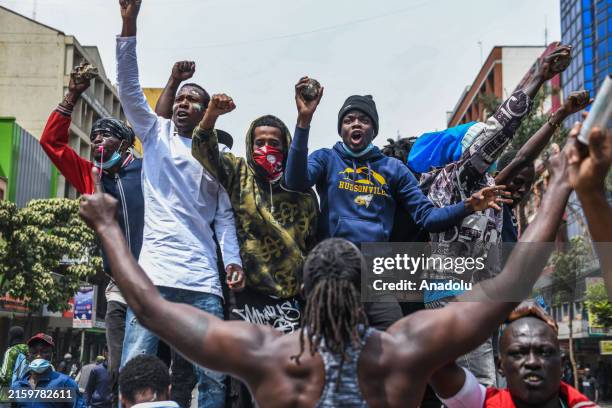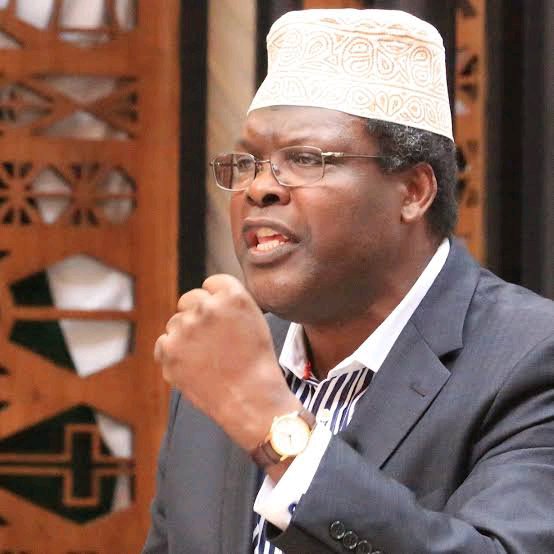When President William Ruto signed the Computer Misuse and Cybercrime (Amendment) Bill 2025 into law on October 18 few Kenyans were paying attention. The nation’s focus was elsewhere on the late Raila Odinga’s final journey home. But as thousands flooded the streets to bid farewell to a political titan another kind of mourning began quietly online.
“I woke up to find my freedom signed away while I was watching history unfold” said Njeri Mwangi, a Nairobi-based digital rights activist. “It’s almost poetic. The man who fought for democracy was being buried and at the same time a law curbing free speech was born.”
The new law pushed through Parliament in early October expands the definition of cybercrime to include “the deliberate spread of misinformation or harmful content that undermines national security or public trust.” Critics argue those phrases are dangerously vague and could easily be weaponized against dissenting voices journalists and whistleblowers.
What the Bill Actually Says
The amendment adds several key clauses to the original 2018 Act. One of them criminalizes “the publication or sharing of false or misleading information likely to cause public alarm or disturb public peace.” Another makes it an offence to use a digital platform to “ridicule or bring into disrepute the office of the president or any constitutional institution.”
A new section also introduces penalties of up to five million shillings in fines or two years in prison for anyone found guilty of publishing content deemed to “erode public confidence in state institutions.” Digital communication service providers are now required to remove flagged content within 24 hours of government notice or face heavy sanctions.
Proponents claim these rules are necessary to curb fake news and online scams. However digital rights groups warn that they give the state unchecked power to decide what counts as false or harmful. Legal experts have called the bill a “back door” to censorship since many offences are defined by intent rather than proof of actual harm.
A Law with a History
The seeds of this moment were planted years ago. In 2018 the first Cybercrime Act was introduced to combat online fraud hate speech and digital extortion. At the time Kenya was grappling with fake news during the tense post-election period. But over time enforcement blurred the lines between fighting disinformation and silencing criticism.
Human rights lawyer Waikwa Wanyoike explains
“The government learned that the online space is powerful. It can mobilize expose and even embarrass the state. What we’re seeing now is not new. It’s the formalization of digital control.”
Kenya’s online community from #OccupyParliament to #RejectFinanceBill has become the pulse of political resistance. During the 2024 youth-led protests over taxation social media exposed police violence shared real-time updates and unified movements across counties. That experience reportedly alarmed senior officials.
The Timing Question
That’s why the timing of this new law is sparking outrage.
“Passing it on the same day as Raila’s death wasn’t just poor timing. It was strategic” said Boniface Okoth, a communications lecturer at Daystar University.
“It slipped under the radar when emotions were high and attention was diverted. It’s classic political misdirection.”
Government spokespersons defend the legislation calling it a necessary measure in an era of rampant digital misinformation.
“We are not targeting critics or journalists” said ICT Cabinet Secretary Eliud Owalo during an interview on Citizen TV.
“We are targeting criminals who exploit online spaces to harm others and destabilize the economy.”
Many Kenyans aren’t convinced. Within hours of the announcement hashtags like #StopTheCyberBill and #FreeTheInternetKE began trending on X.
Voices of Resistance
University student Brian Kiptoo, who was part of the 2024 online protest movement, sees the law as a digital curfew.
“We can’t afford to go silent. This is the same government that said it listens to the youth. Now it wants to criminalize our voice?”
Civil society organizations are already preparing to challenge the law in court citing violations of Article 33 of the Constitution which guarantees freedom of expression. Amnesty International Kenya and the Bloggers Association of Kenya are leading the coalition.
The Bigger Picture
The backlash against the cybercrime law reveals a deeper national tension between the state’s desire for order and the citizens’ demand for accountability. Kenya’s digital sphere once hailed as one of Africa’s most open is at risk of tightening under the weight of security.
As Raila Odinga’s name trends alongside #StopTheCyberBill the irony isn’t lost on many Kenyans.
“The struggle for freedom didn’t end with the handshake” says Njeri. “It just moved to the timeline.”
What’s unfolding is not just a legal battle. It’s a question of identity. Will Kenya remain the bold outspoken democracy it fought to build or drift into the quiet discipline of digital fear?
History it seems is still being written in tweets posts and laws.


